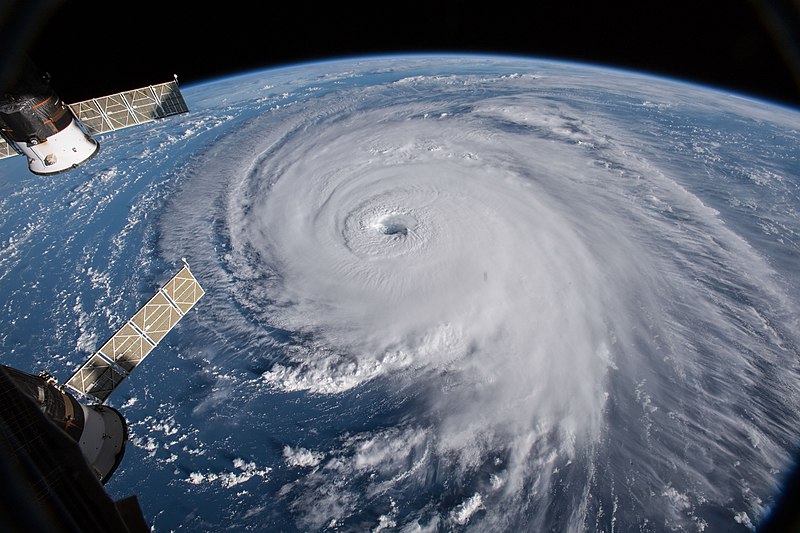Essential Hurricane Preparedness for Parents: Keeping Your Family Safe
Hey there, Super Moms and Dads! ? Are you ready to become a hurricane preparedness superhero? As parents, our number one job is keeping our kiddos safe, and when nature decides to flex its muscles in the form of hurricanes, it’s up to us to suit up! In this upbeat yet super-informative guide, we’ll walk through the steps you need to keep your little ones protected when the winds start howlin’ and the sky turns gray. ??
Understand the Basics: What’s a Hurricane?
Buckle up; it’s science time! ?? Hurricanes, also known as tropical cyclones or typhoons in different parts of the world, are massive storm systems that form over warm ocean waters. They pack winds of 74 miles per hour or higher—yeesh, that’s as fast as a car on the highway! It’s important to teach your children about hurricanes in a way they can understand, without frightening them. Knowledge is power, and power means safety!
Step 1: Early Education and Awareness
Start by chatting with your kids about what hurricanes are and how they can affect us. This can be as simple as reading a children’s book on weather or watching a friendly video together. Remember, the goal here is awareness, not fear. Knowledgeable kids are prepared kids!
Step 2: Create a Disaster Plan
It’s action plan time! ?? Sit down with the whole family and sketch out a disaster plan. This should include things like identifying a safe room in your home, mapping out evacuation routes, and deciding on a family meeting spot. Make sure each child understands the plan and is comfortable with it. Practicing a few drills won’t hurt either!
Step 3: Build Your Emergency Kit
Last but never least, we’ll pack our superhero toolkit, also known as the Emergency Kit. ? This kit should have essentials like water, non-perishable food, first-aid supplies, flashlights, extra batteries, and special items for babies or pets if needed. Involve your kids in the preparation to make it a family project. They can even decorate the kit container!
Emergency Contact Information and Communication Plans
Communication is key during any emergency. Ensure that your family has an up-to-date list of emergency contacts, including relatives, neighbors, and local authorities. Teach your children how to call 911 and when it’s appropriate to do so. Also, in today’s digital world, having a family group chat or a communication app could make all the difference when staying in touch.
Ready to become your family’s hurricane hero? Follow along as we delve deeper into each step, equipping you with all the tips and tricks you need for the upcoming hurricane season. Our guide will ensure your home becomes the fortress of safety and love it’s meant to be, even when the weather outside is frightful! Let’s make sure those hurricanes meet their match with your unbeatable family preparedness plan! ??

“`html
5 Things Parents Should Know When Preparing for Hurricanes
1. Know Your Risk
First things first, understand the hurricane risk for your area. Check out local weather forecasts, know the difference between a hurricane “watch” and a “warning,” and keep an eye on the sky. There’s no need to panic, but staying informed means you can make smart decisions in plenty of time.
2. Educate Your Kids With Age-Appropriate Resources
Your children look to you for guidance, so it’s essential to educate them about hurricanes in a way that’s not scary. Use colorful storybooks, interactive games, or friendly videos that explain what hurricanes are and what they should expect. Education will empower them to feel in control and less anxious.
3. Checklist for Your Emergency Kit
A well-packed emergency kit is your best pal in any situation. Here’s a checklist to ensure you’ve got it all:
- ? Food: Non-perishable items that’ll last for at least 3 days.
- ? Water: One gallon per person per day for at least 3 days.
- ? First-Aid Kit: To patch up any boo-boos and keep everyone healthy.
- ? Flashlights and Batteries: To keep the light shining bright even when the power’s out.
- ? Battery-Powered or Hand-Crank Radio: Stay updated with the latest weather reports.
- ? Personal Identification and Documents: Keep them in a waterproof container.
- ? Cell Phone with Chargers: To maintain communication with the outside world.
And don’t forget, children may have special needs like favorite snacks, games, or comfort items!
4. Have a Game Plan for Evacuation
Know when to stay put, and know when to hit the road. If evacuation is recommended, don’t hesitate. Plan your route ahead of time and make sure everyone in the family knows where to go if you get separated. Have a list of pet-friendly shelters if you’ve got furry friends as part of the clan.
5. Protect Your Home
Before a hurricane hits, take steps to secure your home. Trim trees that could fall on your house, clear gutters and downspouts, and, if you’re in a high-risk zone, consider installing storm shutters. Keep those outdoor items that could become flying debris in a safe place, and reinforce your garage doors if they’re not wind-rated.
Arming yourself with knowledge and a preparedness plan is the best way to ensure your family’s safety. Remember, while hurricanes may be powerful, a prepared family is even mightier! With your emergency kits at the ready, evacuation routes mapped out, and your home battened down, you’re prepared to weather the storm together.
“`
For more great articles please see here. For more information see here
Disclaimer
The articles available via our website provide general information only and we strongly urge readers to exercise caution and conduct their own thorough research and fact-checking. The information presented should not be taken as absolute truth, and, to the maximum extent permitted by law, we will not be held liable for any inaccuracies or errors in the content. It is essential for individuals to independently verify and validate the information before making any decisions or taking any actions based on the articles.




